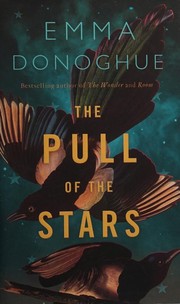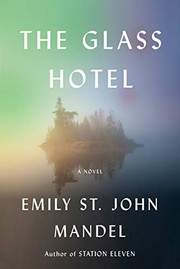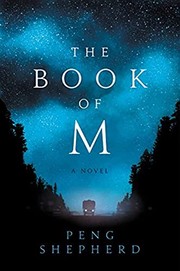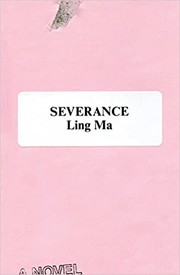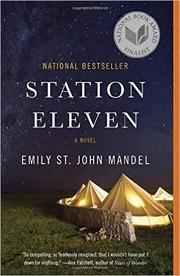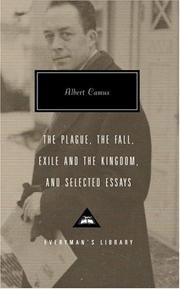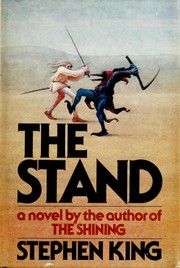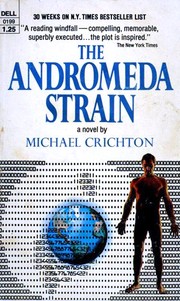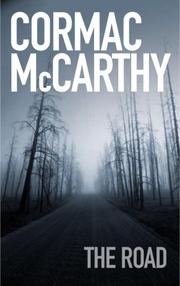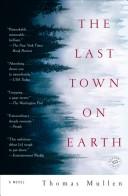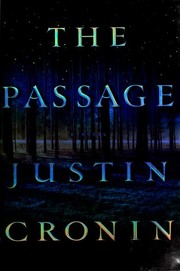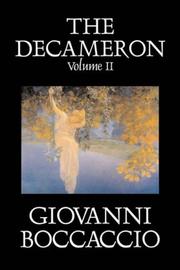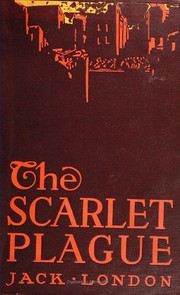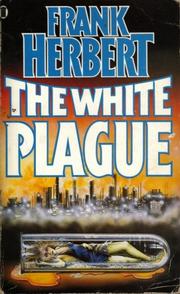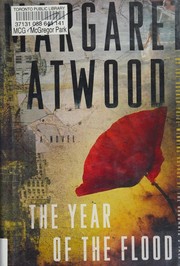Are you looking for the best books to dive into the world of pandemics? Look no further! We’ve compiled a list of the 20 most captivating and thought-provoking books on pandemics that will captivate your imagination and shed light on the complexities of global health crises. From historical accounts to fictional narratives, these pandemic books offer a unique perspective on the impact of infectious diseases on society. Whether you’re a history buff, a science enthusiast, or a fiction lover, these books are sure to provide valuable insights into the human experience during times of crisis. Let’s explore the top 20 books on pandemic that deserve a spot on your reading list!
Contents
- 1 20 Best Pandemic Books
- 2 The Pull of the Stars
- 3 The End of October
- 4 The Glass Hotel
- 5 The Book of M
- 6 Severance
- 7 The Great Influenza
- 8 Station Eleven
- 9 The Plague
- 10 The Stand
- 11 The Andromeda Strain
- 12 The Road
- 13 The Hot Zone
- 14 The Last Town on Earth
- 15 The Ghost Map
- 16 The Passage
- 17 The Decameron
- 18 The Scarlet Plague
- 19 The White Plague
- 20 The Dog Stars
- 21 The Year of the Flood
- 22 Final Thoughts on Best Pandemic Books
- 23
20 Best Pandemic Books
The Pull of the Stars
by Emma Donoghue
The Pull of the Stars by Emma Donoghue is a riveting book on pandemic set in Dublin during the 1918 Spanish flu. The story follows Nurse Julia Power as she works in an understaffed maternity ward, caring for expectant mothers who have contracted the deadly virus. Amid the chaos and fear of the pandemic, Julia forms unexpected bonds with two other women—a volunteer helper and a young, mute patient—which lead to profound moments of connection and resilience.
Donoghue’s powerful storytelling and rich historical detail bring to life the struggles and triumphs of these women as they navigate the challenges of a world gripped by illness and uncertainty. The novel explores themes of hope, courage, and the enduring strength of the human spirit in the face of adversity. The Pull of the Stars is a timely and poignant book about pandemic that resonates deeply with our current global situation, offering a compelling and compassionate portrayal of the human experience during times of crisis.
The End of October
by Lawrence Wright
The End of October by Lawrence Wright is a gripping and timely novel that delves into the world of infectious diseases and the catastrophic effects of a global pandemic. Set against the backdrop of a rapidly spreading virus, the story follows Dr. Henry Parsons, an epidemiologist who races against time to find a cure and prevent the spread of the deadly disease.
With its eerily prescient depiction of a world grappling with the devastating impact of a viral outbreak, The End of October is a compelling and thought-provoking read. Wright’s meticulous research and attention to detail bring a chilling realism to the narrative, making it a compelling and timely read for our current global situation. The novel offers a harrowing glimpse into the chaos and uncertainty that ensues when a pandemic threatens to bring civilization to its knees.
For anyone seeking a gripping and immersive pandemic book that feels all too real, The End of October is a must-read.
The Glass Hotel
by Emily St. John Mandel
The Glass Hotel by Emily St. John Mandel is a captivating novel that weaves together the lives of a diverse group of characters, exploring the interconnectedness of their experiences. Set against the backdrop of a luxurious hotel on a remote island, the story unfolds through a series of interconnected narratives that span multiple time periods and locations. The novel delves into themes of ambition, morality, and the consequences of our choices, creating a rich tapestry of human experience that is both thought-provoking and deeply moving.
With its lyrical prose and intricate storytelling, The Glass Hotel is a mesmerizing exploration of the ways in which our lives intersect and the ripple effects of our actions. As the characters’ lives intersect and diverge, the novel offers a profound meditation on the nature of reality and the interconnectedness of human experience. This is a pandemic book that will captivate readers with its compelling narrative and thought-provoking themes.
The Book of M
by Peng Shepherd
The Book of M by Peng Shepherd is a captivating and haunting novel that takes readers on a journey through a world where people’s shadows suddenly begin to disappear, along with their memories. The story follows a group of individuals who are navigating this strange and terrifying new reality, and the lengths they will go to in order to hold onto their memories and identities. Set in a world where the loss of one’s shadow leads to the loss of their memories, the novel delves into themes of identity, love, and the power of memory. This pandemic book explores the psychological and emotional impact of such a phenomenon, as well as the lengths people will go to in order to preserve their sense of self. The Book of M is a gripping and thought-provoking read that will leave readers questioning the nature of memory and the fragility of our own identities.
Severance
by Ling Ma
Severance by Ling Ma is a captivating and thought-provoking book about a devastating global outbreak that turns society on its head. The novel follows Candace Chen, a millennial living in New York City, as she navigates the chaos and loneliness of a world ravaged by a devastating illness.
Ma’s writing is both haunting and beautiful, as she skillfully weaves together themes of isolation, consumerism, and the search for purpose in a world that has been forever altered by the ‘pandemic’. The story seamlessly jumps between Candace’s pre-apocalypse life and her post-apocalypse struggles, creating a compelling narrative that will keep readers engrossed until the very end.
Severance is a must-read for anyone interested in a unique and thought-provoking take on the ‘pandemic’ narrative. Ma’s exploration of society’s fragile infrastructure and the resilience of the human spirit is both timely and timeless, making this ‘book about pandemic’ a truly unforgettable read.
The Great Influenza
by John M. Barry
The Great Influenza by John M. Barry is a captivating book on pandemic that delves into the devastating 1918 influenza outbreak. Barry provides a comprehensive overview of the virus, its impact on society, and the scientific response to the pandemic. The book offers a gripping narrative of the race to understand the virus, the efforts to contain its spread, and the political and social consequences of the outbreak.
Barry’s meticulous research and compelling storytelling make this book about pandemic a must-read for anyone interested in history, medicine, or public health. The Great Influenza is a thought-provoking exploration of the deadliest pandemic in modern history, shedding light on the resilience of the human spirit in the face of unimaginable tragedy. With its relevance to today’s global health challenges, this pandemic book is a timely and enlightening read that offers valuable insights into the complexities of infectious disease and the human response to crisis.
Station Eleven
by Emily St. John Mandel
Station Eleven by Emily St. John Mandel is a captivating novel that takes readers on a journey through a post-apocalyptic world. Set in the aftermath of a devastating flu pandemic, the novel weaves together the lives of various characters, both before and after the outbreak. Mandel skillfully explores themes of survival, art, and the resilience of the human spirit amidst a world forever changed by the pandemic.
The story follows a traveling troupe of actors and musicians who perform Shakespearean plays and classical music for the scattered communities that have emerged in the wake of the pandemic. As they navigate the dangers of this new world, they encounter both beauty and brutality, and their interconnected lives are revealed through a series of poignant and interwoven narratives.
Station Eleven is a thought-provoking and beautifully written novel that offers a unique perspective on the impact of a global catastrophe. It is a pandemic book that delves into the complexities of human relationships and the enduring power of art in the face of adversity.
The Plague
by Albert Camus
The Plague by Albert Camus is a gripping novel that delves into the human experience during a deadly outbreak. Set in the Algerian city of Oran, the book follows the lives of its diverse inhabitants as they grapple with the sudden emergence of a mysterious and deadly disease. The novel is a poignant exploration of the human condition, as the characters confront their own mortality, isolation, and the breakdown of society in the face of the epidemic.
Camus skillfully weaves together themes of existentialism, morality, and the resilience of the human spirit in the face of adversity. The Plague is a thought-provoking and timely read that offers profound insights into the nature of suffering and the ways in which individuals and communities respond to crisis. This pandemic book is a haunting and powerful reminder of the enduring impact of a devastating disease on society, making it a compelling and relevant read for our times.
The Stand
by Stephen King
The Stand by Stephen King is a gripping post-apocalyptic novel that delves into the aftermath of a devastating plague that wipes out over 99% of the world’s population. This epic tale follows a diverse group of survivors as they navigate a world decimated by a deadly virus. With society in ruins, the remaining individuals are forced to confront their inner demons and form new alliances in order to rebuild civilization. The novel explores themes of good versus evil, the resilience of the human spirit, and the fragility of society in the face of catastrophe.
Stephen King’s masterful storytelling and vivid character development make The Stand a timeless and thought-provoking read. This pandemic book offers a chilling and immersive portrayal of a world ravaged by a deadly contagion, making it a compelling and relevant read for fans of dystopian fiction and post-apocalyptic narratives.
The Andromeda Strain
by Michael Crichton
The Andromeda Strain by Michael Crichton is a gripping science fiction thriller that delves into the terrifying possibilities of a deadly extraterrestrial microorganism wreaking havoc on Earth. The story follows a team of scientists as they race against time to understand and contain the mysterious organism, known as the Andromeda Strain, before it wipes out humanity. This pandemic book explores the implications of a highly infectious and lethal pathogen, presenting a chilling vision of the potential consequences of a global outbreak.
Crichton’s masterful storytelling and attention to scientific detail make The Andromeda Strain a compelling and thought-provoking read, drawing readers into a world of high-stakes scientific discovery and life-or-death decisions. The novel’s fast-paced plot and intricate scientific concepts keep readers on the edge of their seats, making it a must-read for fans of thrilling, pandemic-themed literature. With its blend of scientific speculation and heart-pounding suspense, The Andromeda Strain is a classic in the genre of books about pandemics that continues to captivate readers today.
The Road
by Cormac McCarthy
The Road is a post-apocalyptic novel by Cormac McCarthy, set in a world devastated by an unspecified cataclysm. The story follows a father and his young son as they journey through a landscape of desolation and despair, struggling to survive in a world where civilization has collapsed. They face the constant threat of starvation, violence, and cannibalism as they make their way south in search of a warmer climate. The novel explores themes of survival, love, and the enduring human spirit in the face of overwhelming adversity. McCarthy’s sparse and haunting prose creates a bleak yet compelling portrait of a world ravaged by disaster, while also offering a powerful meditation on the bond between parent and child. The Road is a gripping and thought-provoking read, making it a timeless classic that resonates with readers long after they have turned the final page.
The Hot Zone
by Richard Preston
The Hot Zone by Richard Preston is a gripping non-fiction book about a deadly virus outbreak. Set in the late 1980s, the book follows the true story of a terrifying Ebola virus outbreak in a research facility in the United States. The author takes readers on a heart-stopping journey into the world of infectious diseases, detailing the efforts of scientists and medical professionals as they race against time to contain the deadly virus.
This pandemic book is a compelling and chilling account of the potential dangers of infectious diseases and the catastrophic impact they can have on humanity. Richard Preston’s vivid and suspenseful writing style draws readers into the high-stakes battle against a deadly enemy, making The Hot Zone a truly unforgettable read. Whether you’re a fan of medical thrillers or simply curious about the real-life dangers of infectious diseases, this book about a pandemic is sure to leave you on the edge of your seat.
The Last Town on Earth
by Thomas Mullen
The Last Town on Earth by Thomas Mullen is a gripping novel set against the backdrop of the Spanish flu pandemic in 1918. This historical fiction immerses readers in the small town of Commonwealth, which takes drastic measures to protect its residents from the deadly influenza outbreak. The town enforces a strict quarantine, turning away outsiders and setting up armed guards at the perimeter. However, when a mysterious stranger arrives seeking refuge, the community is faced with a moral dilemma that threatens to unravel their carefully constructed isolation.
Mullen’s powerful storytelling and vivid descriptions bring to life the fear, paranoia, and resilience of a community battling a deadly contagion. The Last Town on Earth is a thought-provoking exploration of human nature, morality, and the consequences of extreme measures in the face of a public health crisis. This pandemic book offers a poignant reflection on the parallels between historical events and the contemporary challenges we face today.
The Ghost Map
by Steven Johnson
The Ghost Map by Steven Johnson is a gripping narrative that delves into the 1854 cholera outbreak in London. Johnson expertly weaves together the stories of physician John Snow and Reverend Henry Whitehead as they work to unravel the mystery of the deadly disease that is ravaging the city. This book is not just a historical account, but a thrilling detective story that follows the trail of a deadly contagion. Johnson’s vivid storytelling and meticulous research bring to life the streets of Victorian London and the race against time to stop the spread of the disease. The Ghost Map is a compelling exploration of how a deadly outbreak can be contained through the power of human ingenuity and collaboration. It is a must-read for anyone interested in public health, urban history, or simply enjoys a gripping tale of triumph over adversity. This pandemic book is a testament to the resilience of the human spirit in the face of a global crisis.
The Passage
by Justin Cronin
The Passage by Justin Cronin is a gripping and intense book about pandemic that will keep you on the edge of your seat. This epic novel weaves together themes of survival, love, and humanity in the face of a cataclysmic event. The story begins with the discovery of a virus that has the power to grant immortality but also turns its victims into bloodthirsty monsters. As the virus spreads and society collapses, a group of survivors must navigate a world overrun by the infected and find a way to save humanity. Cronin’s masterful storytelling and vivid descriptions bring this post-apocalyptic world to life, immersing readers in a thrilling and haunting tale of resilience and hope. With its richly developed characters and heart-pounding action, The Passage is a must-read for fans of dystopian fiction and anyone looking for a thought-provoking and unforgettable pandemic book.
The Decameron
by Giovanni Boccaccio
The Decameron by Giovanni Boccaccio is a timeless classic that offers a captivating glimpse into the lives of ten young people who escape the Black Death by retreating to a secluded villa. This masterpiece, written in the 14th century, is a collection of 100 novellas that explore themes of love, lust, wit, and human resilience in the face of adversity. As the characters share their stories over ten days, the reader is transported to a world of rich storytelling, humor, and insight into the human condition.
At its core, The Decameron is a pandemic book that offers a poignant reflection on the impact of devastating illness and the ways in which people respond to crisis. Boccaccio’s vivid portrayal of life during a plague serves as a reminder of the enduring nature of human spirit and the power of storytelling to provide solace and escape during difficult times.
The Scarlet Plague
by Jack London
The Scarlet Plague by Jack London is a gripping and thought-provoking book about a devastating pandemic that wipes out nearly the entire human population. Set in the year 2073, the novel follows the story of an old man who survived the pandemic and recounts the harrowing events that led to the downfall of civilization. London’s vivid descriptions and powerful storytelling transport readers to a world ravaged by disease, where society has crumbled, and the survivors are left to fend for themselves in a desolate and dangerous landscape. This pandemic book offers a haunting portrayal of the collapse of human civilization and serves as a cautionary tale about the fragility of our existence. The Scarlet Plague is a compelling and timely read that will resonate with readers as they contemplate the resilience of the human spirit in the face of adversity.
The White Plague
by Frank Herbert
The White Plague by Frank Herbert is a compelling thriller that delves into the terrifying consequences of a devastating global epidemic. Set in a world where a deadly bioweapon is released, the novel follows molecular biologist John Roe O’Neill as he seeks vengeance for the loss of his family to the pandemic. Driven by grief and rage, O’Neill unleashes a genetically engineered plague that specifically targets women, leading to widespread chaos and societal breakdown.
As the world grapples with the catastrophic effects of the pandemic, O’Neill becomes a wanted man, hunted by both government agencies and terrorist groups. The novel masterfully explores the ethical and moral dilemmas of biological warfare, as well as the complex interplay between science, politics, and human nature in the face of a global crisis. The White Plague is a thought-provoking and gripping pandemic book that raises important questions about the potential consequences of unchecked scientific advancement and the fragility of civilization in the face of a deadly contagion.
The Dog Stars
by Peter Heller
The Dog Stars by Peter Heller is a compelling post-apocalyptic novel set in a world ravaged by a devastating flu pandemic. The story follows Hig, a pilot, and his faithful dog as they navigate a desolate landscape, searching for signs of life and a sense of purpose. The book paints a haunting picture of a world decimated by the ‘plague’, where survival is a daily struggle and hope is a rare commodity.
Heller’s prose is both lyrical and gritty, immersing the reader in a world that is as beautiful as it is brutal. The novel explores themes of isolation, loss, and resilience, as well as the enduring bond between humans and animals. The Dog Stars is a gripping and thought-provoking read that will resonate with anyone who enjoys a well-crafted dystopian tale. This pandemic book is not just a story of survival, but also a poignant meditation on the human spirit in the face of unimaginable adversity.
The Year of the Flood
by Margaret Atwood
The Year of the Flood by Margaret Atwood is a riveting dystopian novel that explores a world devastated by a catastrophic ‘pandemic’. Set in a not-so-distant future, the story follows the lives of two women, Toby and Ren, as they navigate a world where a deadly virus has wiped out most of the population. The novel delves into themes of survival, environmental degradation, and the power dynamics of a society in crisis.
Atwood’s vivid storytelling and richly developed characters draw the reader into a world that feels eerily familiar yet hauntingly foreign. The novel’s exploration of the ‘pandemic’ and its aftermath is both timely and thought-provoking, offering a glimpse into a future that feels all too possible.
With its gripping plot and thought-provoking themes, The Year of the Flood is a must-read for anyone interested in dystopian fiction, environmentalism, or simply a compelling story that will stay with you long after you’ve turned the final page.
Final Thoughts on Best Pandemic Books
In conclusion, these 20 best books about Pandemic offer a diverse and insightful look into the impact of infectious diseases on society. From historical accounts to fictionalized scenarios, these books provide a comprehensive understanding of pandemics and their far-reaching effects. Whether you’re interested in the science, history, or human experience of pandemics, there’s a book on this list for you. So, grab a copy and immerse yourself in the compelling narratives and thought-provoking insights that these books have to offer.
Which book about Pandemic is best?
The best book on Pandemic can vary with personal preference, but three widely recommended titles are:
- The Pull of the Stars by Emma Donoghue,
- The End of October by Lawrence Wright,
- The Glass Hotel by Emily St. John Mandel.
Each offers valuable insights and could be a great starting point.
What are the best books to learn about Pandemic?
For those looking to learn about Pandemic, there is a wealth of literature that can provide a comprehensive understanding of the subject. Some of the most highly recommended books include:
- The Pull of the Stars by Emma Donoghue,
- The End of October by Lawrence Wright,
- The Glass Hotel by Emily St. John Mandel,
- The Book of M by Peng Shepherd,
- Severance by Ling Ma,
- The Great Influenza by John M. Barry,
- Station Eleven by Emily St. John Mandel,
- The Plague by Albert Camus,
- The Stand by Stephen King,
- The Andromeda Strain by Michael Crichton
These books offer a range of perspectives on Pandemic, covering various aspects and approaches to the subject.
What are the best books about Pandemic?
The best books about Pandemic are:
- The Pull of the Stars by Emma Donoghue,
- The End of October by Lawrence Wright,
- The Road by Cormac McCarthy,
- The Hot Zone by Richard Preston,
- The Plague by Albert Camus,
- The Great Influenza by John M. Barry.
Each offers unique insights into the subject. While these books about Pandemic are highly regarded, it’s important to note that any list of ‘best’ books is subjective and reflects a range of opinions.
What are the best Pandemic books of all time?
Choosing the best Pandemic books of all time can vary depending on who you ask, but five titles that are often celebrated include
- The Pull of the Stars by Emma Donoghue,
- The End of October by Lawrence Wright,
- Severance by Ling Ma,
- The Plague by Albert Camus,
- and The Road by Cormac McCarthy.
Each of these books has made a significant impact in the field of Pandemic and continues to be influential today.

